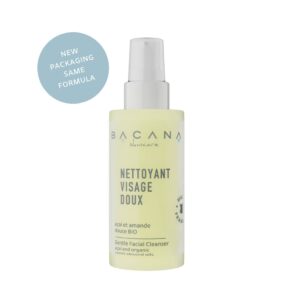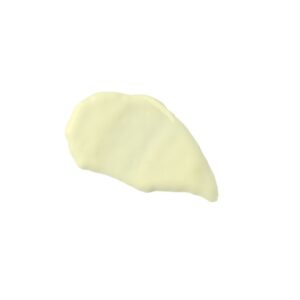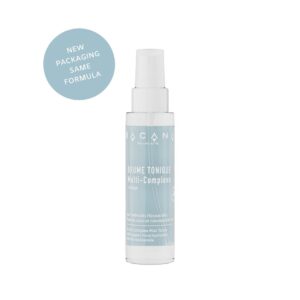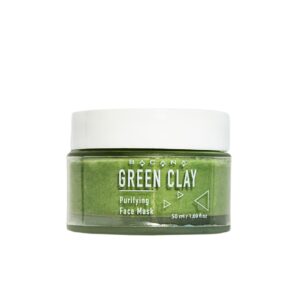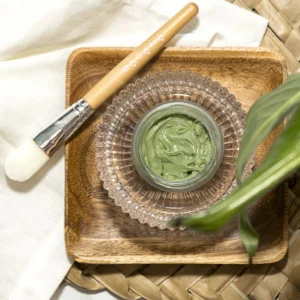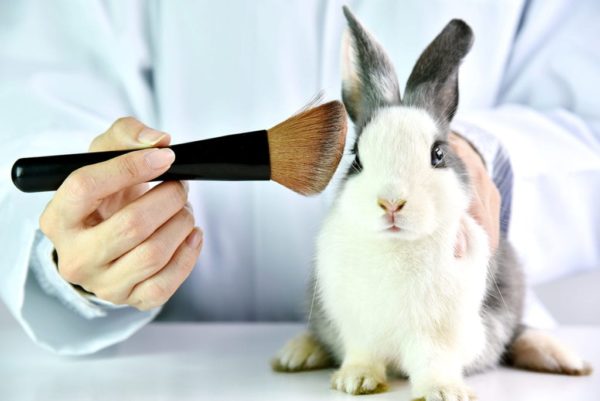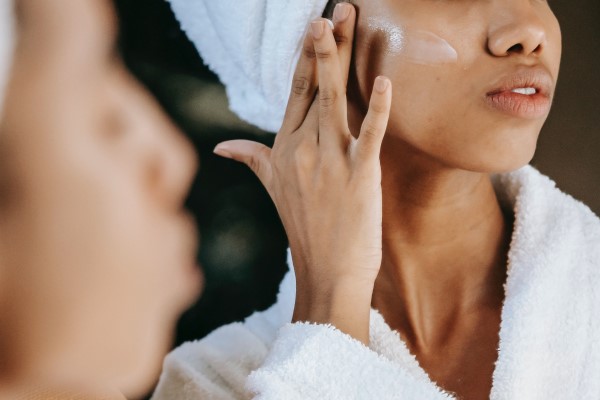What is acne?
How to treat acne with natural products? This question is important because acne is the most common skin disease seen by doctors, a condition that affects about 80% of adolescents worldwide and persists in up to 30% of the adult population. It occurs when the pores become clogged by dead cells, resulting in the accumulation of sebum, an oily substance produced by the sebaceous glands.
The term acne is used to describe blackheads, whiteheads, cysts, and pimples which usually appear on the face but can also affect the neck, back, shoulders and arms.

What are the causes?
Several factors are involved in the appearance of acne, but the main one is the accelerated growth of Cutibacterium acnes (C. acnes), a bacterium naturally present in the skin, which can contribute to the blockage of the pores and cause inflammation. This inflammation can be seen through redness, swelling, pus, and acne spots, leading to the appearance of pimples.
Genetic heredity is another factor that determines who may have acne and how severe it can be. If your parents, grandparents, or both have acne, you are more likely to develop acne as well.
How to treat acne with natural products?
Acne treatment aims to reduce inflammation, keep the affected area clean, reduce the presence of bacteria in the pores and regulate sebum production. Natural alternatives are widely used for such treatments. See below for some admittedly effective options.
Copaiba Oil
This oil has a powerful anti-inflammatory, healing, and antibacterial activity. The topical use of this oil reduces local inflammation, aids in healing, and helps to decrease bacterial concentration.
Tea Tree Essential Oil
Tea tree oil is well known for its anti-inflammatory and antiseptic properties, making it ideal for fighting the bacteria responsible for inflammation caused by acne.
Moringa Oil
This oil has many important nutrients besides helping control oiliness. It is a source of antioxidant actives, having a cleansing power and protecting against pollutants, and therefore improving the overall appearance of the skin.
Zinc PCA
It is a vegetable derivative that acts in the regulation of sebum production and in the reduction of the acne-causing bacteria, which contributes to microbial control. It also helps in hydrating the skin.
Jojoba Oil
This powerful oil helps to naturally regulate skin oils. It is indicated in the treatment of acne due to its healing and anti-inflammatory action. Rich in vitamin E, which provides important antioxidant action.
Green Clay
It has a series of elements in its composition, such as silicon, calcium, magnesium, zinc, potassium, and iron, which help to regulate sebum production, in addition to providing a powerful antioxidant action.
Vitamin B3
Studies are reporting the benefits of topical vitamin B3 for acne healing and skin regeneration. Vitamin B3 has been proven to reduce inflammation in various scientific studies. 4% of Nicotinamide (Vitamin B3) Lotion reduced acne by 60% compared to just a 43% improvement in the subjects who used a 1% antibiotic gel (clindamycin).
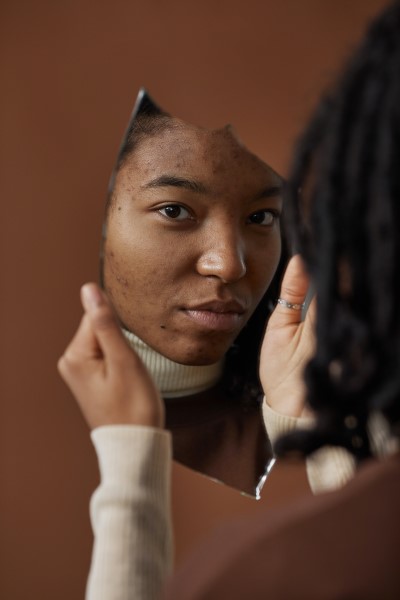
Acne or just breakout?
When beginning a new skincare routine, you may experience breakouts or irritation within the first few days of product use. It’s normal that acne may worsen in the first 1-2 weeks of treatment before getting better. After 2-4 weeks, your skin should be used to the product and consequently be able to apply and leave it on all day & night without significant irritation. Any skin irritation due to treatment should subside after a few days of use so it’s important to use it properly and continue for as long as recommended.
Who can get acne?
Acne can affect everyone regardless of gender and age. Most teenagers are affected to some degree. This is because the increase in hormones that occurs at puberty seems to accelerate acne. It usually starts at puberty due to hormonal changes and lasts for about five years, although it can continue into adulthood.
Most women will continue to experience acne episodes after the age of 40. It mainly depends on hormonal factors during menstruation, pregnancy, or menopause, mildly or more severely.
How to prevent it?
There are several actions that we can take in our routine to mitigate the onset of acne and prevent the condition from worsening:
- Wash your face 1 to 2 times a day;
- Always remove makeup from the face after use and thus wash the brushes;
- Prioritize the use of oil-free and non-comedogenic products that contain ingredients that will prevent clog pores;
- Use a sunscreen suitable for your skin type;
- Preferably use products with natural ingredients with proven effective action;
- Do not move or squeeze the pimples, this can further inflame the region and aggravate the acne condition.
If left untreated, small spots can develop into blackheads, whiteheads, and painful pimples that can consequently cause permanent skin blemishes.
How to treat acne with natural products from Bacana Skincare?
In the amazing Green clay Face Mask, you can find some ingredients that help to treat and prevent breakouts, such as jojoba, copaiba, moringa, and tea tree oils. Furthermore, the Brazilian Green Clay and Zinc PCA will also help to purify and detoxify the skin by removing the excess of sebum without drying out your skin.
To cleanse the face, Bacana launched Cleansing Cream Face Wash, a delightful foaming cream that will gently remove the impurities and light makeup, resulting in a clean, soft, and moisturized face feeling.
The Serenity Vitamin Mist Toner is an alcohol-free Mist Toner that blends Niacinamide (Vitamin B3), Coconut Water, Panthenol (Vitamin B5) to help soothe, purify, and hydrate the skin.
Sources
https://cmr.asm.org/content/19/1/50.full
https://www.scielo.br/scielo.php?script=sci_arttext&pid=S1516-05722009000400016
https://www.researchgate.net/publication/260210731_Effect_of_Moringa_oleifera_on_undesireble_skin_sebum_secretions_of_sebaceous_glands_observed_during_winter_season_in_humans
https://pubmed.ncbi.nlm.nih.gov/7657446/

